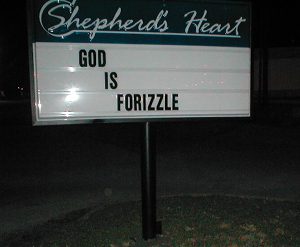In the Beginning

I didn’t know it at the time, but this book began when I was 18 years old. I could not have started writing it before that, because people are too self-absorbed during their high school days, too naïve during their middle school days, and too stupid during their elementary school days. And while I don’t think I was the epitome of the above progression, I don’t think I was its exception either. At the start of my freshman year, though, I had my feet under me enough to reach out for something more and I did.
Here’s what I do know about the subject though. Everyone in the world falls into two categories. People either think there is something greater than themselves out there or they don’t.
The believers are better off. In terms of people’s happiness, it doesn’t really matter how you describe this ultimate power. Old Man. Hot Blonde. Big Tree. As long as there’s something – anything – out there to aspire to, to hold on to, to share life with, then it will be easier to deal with adversity. No matter how bad things get, there’s always something to help carry the burden, to soften the blow, or temper the sadness. And the good is better if you have someone and something to share it with or if it fits into some greater schema. The good will have more value if it feels aimed at, deserved, or destined.
In contrast, those who feel there are alone at the most fundamental level will always be at a disadvantage. Their spirits are not hopeful that things will get better. For them, tomorrow is sure to be like today. And soon, you will die. They feel cheated. They will ask the universe, why are you doing this to me? And they do not expect a reply. Even when things are good, they see it as a fleeting moment in time. For these people, the only thing that real is themselves and the world and they soon grow to resent both.
In the end, the non-believers will console themselves in believing that they are right. The Marquis de Sade wrote, “I write of the great eternal truths that bind all men together the whole world over. We eat, we shit, we fuck, we kill, and we die.” But what good is truth if it is of no good to you? Truth alone will not sustain you. You cannot eat it. You cannot be loved by it. The ancients knew this, so they wrote a story about God, or the gods, or the Forms, or Nature.

0 Comments:
Post a Comment
<< Home